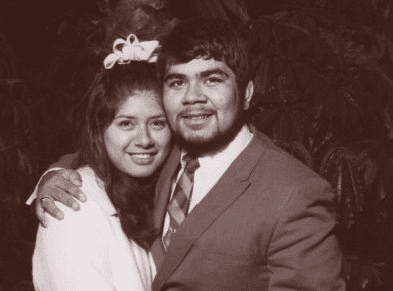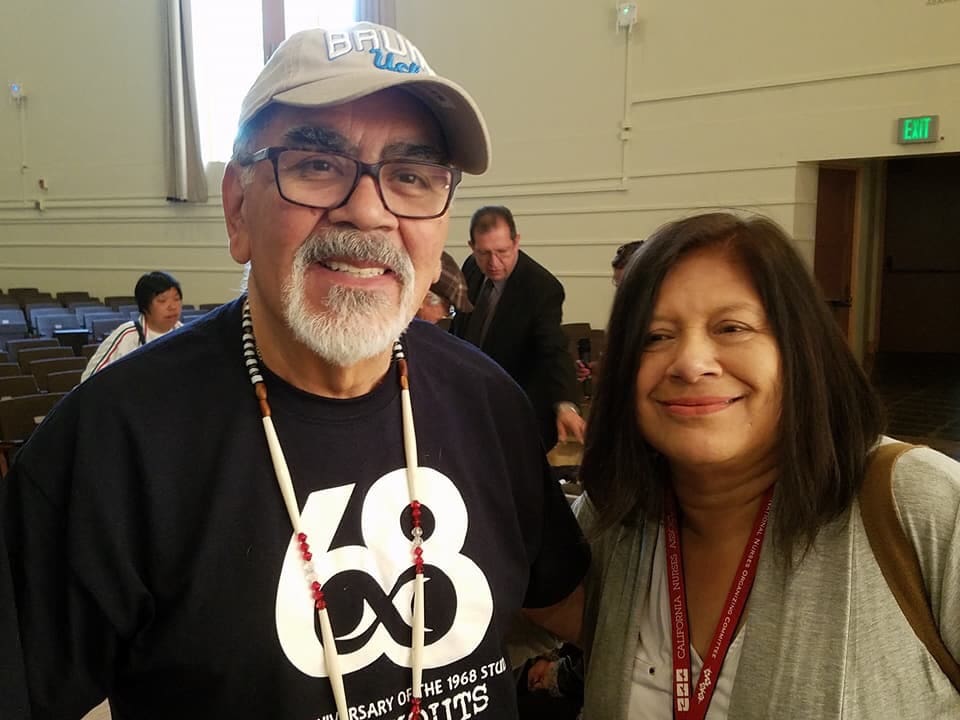
1968 Chicano LA Walkouts: Bobby Verdugo & Yoli Ríos
Bobby Verdugo and Yoli Ríos are in great demand for speaking engagements this month because March 8th is the 50th anniversary of the East L.A. Chicano Walkouts. The married couple played instrumental roles in organizing and orchestrating the Walkouts at five high schools in East Los Angeles. Below are excerpts from a phone interview conducted with Bobby on March 8, 2018.
Can you talk about your experience leading up to the Walkouts?
My name is Robert “Bobby” Lee Verdugo Jr. I am a Chicano who was born in East L.A. In elementary school, I was a bright and energetic young student but by the time I got to high school, something started to happen. I started to feel unworthy of any attention or education that the teachers could offer me. They began to call me an underachiever, a loser, someone who was not worth taking the time to teach. I felt so defeated. I dropped out of high school my senior year. I started to blame myself, thinking it was my fault that I failed.
During that time, there were a lot of students at different high schools that also were experiencing that defeatism, alienation and isolation. It felt like our humanity had been taken away from us by this society, but particularly by the school system. In talking with other students from other schools, I started to learn that there was a bigger problem than just me. There was a 50% drop out rate at my high school and many schools on the eastside. I acknowledged my responsibility for dropping out, but I also started to realize the school needed to take responsibility for their inaction in not educating me and those other 50% of students. That was the impetus for me to want to do something about it; which led to the Walkouts of 1968.
In organizing the Walkouts, one of our major demands, one of our cries, was to end the discrimination and the oppression that led to the high dropout rate in the eastside schools. So, in talking to other students, we saw that there were other issues like overcrowded classrooms and low college enrollment for those that did graduate. In 1968, UCLA had a total of 40 Chicano/Latino students. After the Walkouts, that number rose from 40 to 1,200 students in 2 years. So, we were a small part of that, but we realized then that we had a voice; those of us that were feeling defeated, suddenly felt empowered.
Even though I dropped out of high school, I ended going to UCLA in 1968, by way of a special admission program.
Do you see your experience in the Walkouts as a springboard into your life’s work?
Absolutely. I’m real proud of what I did 50 years ago, but I’m just as proud of what I have been able to do as an adult. I became a social worker. I ended up working with other men, particularly through the National Compadres Network (NCN), developing programs for young fathers back in 1995. We started what we called the Con Los Padres program in East LA, and we were able to help young men, who like myself, felt defeated. People were telling them, now that you’re a teen father, that’s it, your life is over, you got nothing to look forward to.
That’s how I felt, and I realized what Sal Castro taught me, that I could teach them how to feel good about themselves and that there are men like me who will not give up on them. So, through that program, we helped them not only become good fathers, but to go back to school and plan for the future.
Just like the young men, we adult men needed to help ourselves. As adults, we carry cargas. We believe in cargas (baggage) and regalos (gifts) and that we grow up with a sacred purpose. We develop gifts and baggage, and too often it is the baggage that gets acknowledged rather than the gifts. Back then, we realized that even though we were in our 30’s, 40’s, 50’s, even 60’s, we still had a lot to learn as adults. So, through NCN, we created our own circles, to help ourselves, so that we would be better able to help others. Those are the lessons that I carry now as an adult.
So, like I said, I was proud of what I did 50 years ago, but I’m just as proud of what I am doing today. And even though I am retired, I still rely on men for support, and these young men rely on us for help. You know, we help each other, we educate each other. Some of the young men we helped in 1995, are now doing the work that we were doing, they carry on that tradition. They carry on that legacy. And that’s what I am really proud of.
So, yea, there are connections to what we did in the sixties, particularly the Walkouts. That defined me as a person, as a Chicano, wanting to give back to the community. Now I am able to do it because of the Walkouts; somebody did not give up on me and I am not going to give up on them.
What advice do you give to young people? What sort of advice do young people ask you for?
Young people today are asking for the same thing that we were asking for 50 years ago; recognition, acknowledgement, and to be recognized for their humanity. Too often it’s taken away from them. We call them gang bangers, we call them drug users. Look at this Administration; how they’re trying to identify and dehumanize the young people. They are screaming out for help and we’re the ones who can give it. In 1968, we relied on each other, but we also relied on our parents and other people in the community recognizing our humanity and giving us love and support. That’s all the young people today are asking for.
How would you describe your relationship and partnership with Yoli, your wife, all these years?
We have been together since 1968. Right there in the Walkouts we started “going around”. She was a much better student than I was. I watched her graduate from the Lincoln High School football field bleachers. She continued her education at Immaculate Heart College, which doesn’t exist anymore but back in the day it was a prestigious Liberal Arts College in Hollywood.
She went on, just like me, to choose a career helping and giving back to the community. She began a career as a teaching assistant and did many other jobs and recently retired this past October (2017) as a labor representative for the California Nurses Association. She represented registered nurses, fighting for their benefits and fighting alongside with them for patients’ rights.
For years, Yoli wasn’t able to go on the road and speak about her role in the Walkouts, but now that she’s retired, she’s able to join me provide consulting services to education programs and visit schools to talk about our experience as youth organizers in the ‘60s and our lifetime commitment to working in the community. People are beginning to see her and realize she deserves attention and recognition.
Both of us were influenced by the Walkouts. Both of us have done some important work in our adult lives and we all owe it to our experience as teenagers organizing together and having people like Sal Castro teach us so we can in turn, teach others in that same spirit.
To learn more about the Walkouts, see the HBO movie “Walkout” and/or click on this link https://youtu.be/-3TKnj0fXZs to see Sal Castro talk about the Walkouts.

